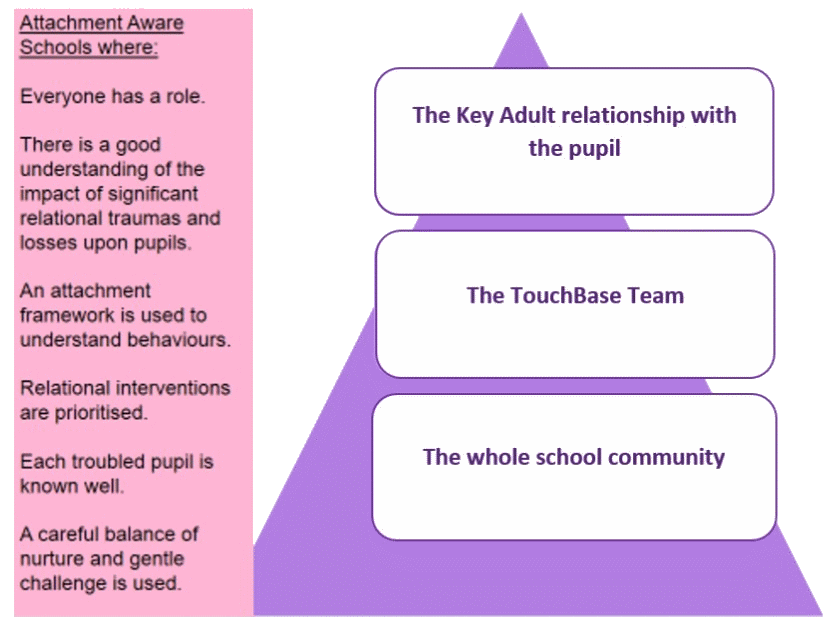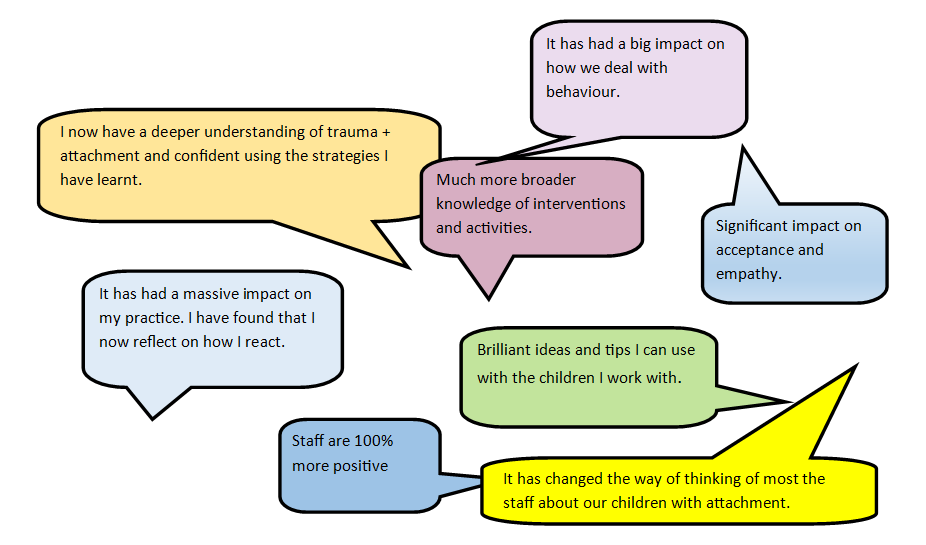
|
Attachment Aware Schools.pdf Size : 310.223 Kb Type : pdf |


And are addressing the developmental vulnerabilities of troubled pupils.
Pupils who have experienced significant relational traumas and losses in their short lives to date often have developmental vulnerabilities in the following areas – in their executive functioning, regulation and psychological development.
An Attachment Aware School ensures that these three areas are attended to by the KA, TouchBase Team and whole staff.
Website Design by Open Formula